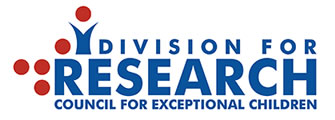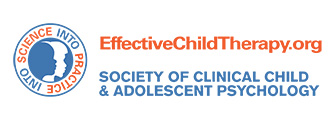
What is Functional Neurological Disorder?
Functional Neurological Disorder (FND) is diagnosed when a child has a neurological symptom or symptoms without an organic neurological disease or damage. This means that the symptoms exist even though there is not a diagnosed problem in the brain or the nervous system. The symptoms may vary in severity and duration, and can impact multiple areas of the body. The symptoms can include abnormal movement (e.g. tremors, difficulties walking, sudden muscle contractions), sensory loss or gain (e.g. numbness, blindness, deafness), shaking, weakness or paralysis, and episodes that look like seizures. The symptoms can interfere with the child and family’s life, making it difficult to complete daily activities such as going to school. FND is usually diagnosed by a pediatric neurologist. Most importantly, the symptoms are real AND the body is healthy and safe.
What causes FND?
FND occurs when there is miscommunication between the brain and the body; messages are not being sent and received the correct way and the body learns an incorrect response. This misfiring can occur after an injury or illness or exposure to injury or illness (e.g. fracture, pain symptoms), as the result of environmental, social, emotional, and psychological stressors (e.g. increased anxiety). It can also occur from a combination of all of these factors. Other factors that may influence the onset of symptoms include increased attention to physiological sensations (monitoring how their body feels), anxiety and depression, trauma, and beliefs about the symptoms and illness. Some children may be able to identify a stressful trigger for their symptoms while others may not.
What to do as a parent of a child with FND?
Parenting a child with FND can often be a frustrating experience because of the difficulties in navigating a complex medical system. Parents are often frustrated because they feel misunderstood or ignored by professionals. Additionally, parents struggle to find providers who specialize in FND and are comfortable providing treatment and support. Parents do have control over how they respond to their child and it’s strongly recommended they do the following:
- Validate their child’s experience by making statements such as “I can see that this is difficult and you’re doing your best to get through this.”
- Encourage daily routine and activities. Daily routine and structure provide a sense of predictability for your child during a stressful time. A simple routine may include meal and sleep times.
- Reinforce your child’s progress and participation in therapies. Children benefit from ongoing praise and encouragement and this approach leads to lasting positive change.
- Encourage your child to use the skills they are learning with their psychologist and other providers. They will benefit from therapy the most when they practice what they learn in their daily life.
- Increase expectations gradually as your child’s functioning improves. It is important to pace activities and allow your child opportunities to rest as they continue to make progress.
What NOT to do as a parent of a child with FND?
- Say “This is all in your head.” FND is complicated and difficult to understand, and children may already blame themselves for their symptoms. It is important to remind your child that they have the potential to regain control over their body even though they did not cause the symptoms.
- Eliminate all responsibilities and activities. It is normal to want to reduce activities, but it is important to keep structure and communicate to your child that you believe they can participate in daily activities, even if they are modified.
- Consistently ask your child about their symptoms. It is normal to want to ask your child how they are doing and what symptoms they are experiencing, but it is also important to know that sometimes focusing on the symptoms can make them worse. It may be helpful to focus on your child’s functioning and ask them what support they need.
Who should be on your treatment team?
- Pediatric Psychologist
- Physical Therapist
- Occupational therapist
- Yoga Instructor
- Pediatrician
- Other medical providers if there are other medical conditions
What to expect during treatment?
- Education about the diagnosis, symptoms, and treatment plan
- Skills training that may include relaxation, cognitive, and behavioral strategies (e.g. identifying thoughts about the symptoms and changing them, finding other behaviors to replace the symptoms)
- Physical and occupational therapy to improve physical and daily functioning
- Check-ins with a pediatrician and other medical providers
What do I share with the school team?
Parents often have questions about what to share with their child’s school when they are ready to return. It’s strongly recommended that parents share information they are comfortable sharing with the school staff, such as:
- Information about the diagnosis
- Information about your child’s coping tools so school staff can support them
- Support your child’s needs to gradually transition back to school
- A plan that includes breaks, flexibility, and strategies for a calm response to episodes if they occur at school (e.g. 504 plan).
Resources:
https://fnsdsigspp.wordpress.com
https://neurosymptoms.org/en/
https://fndhope.org
Proper Citation for this blog post:
Kaur, H (2023, November 9th) Functional Neurological Disorder in Children and Adolescents: A Parent Guide. Retrieved from https://infoaboutkids.org/blog/functional-neurological-disorder-in-children-and-adolescents-a-parent-guide/
















